'Public Hearings Are Exactly What Judges Do,' Judge Says of Victim Testimony at Post-Death Epstein Hearing
"I believe it is the court's responsibility, and manifestly within its purview, to ensure the victims in this case are treated fairly and with dignity," U.S. District Judge Richard Berman said in court Tuesday.
August 27, 2019 at 04:50 PM
5 minute read
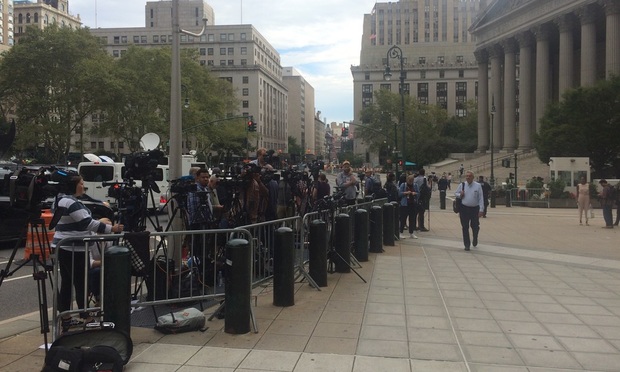 Media gathered outside the Southern District of New York Courthouse in Manhattan on Aug. 27, 2019, in advance of a posthumous hearing in the criminal case of Jeffrey Epstein. Photo by Jason Grant/ALM
Media gathered outside the Southern District of New York Courthouse in Manhattan on Aug. 27, 2019, in advance of a posthumous hearing in the criminal case of Jeffrey Epstein. Photo by Jason Grant/ALM
At a stirring, at times searing, and potentially legally influential hearing Tuesday in the Jeffrey Epstein criminal prosecution, U.S. District Judge Richard Berman moved toward ending the case against the deceased Epstein, even as he openly defended his decision to let the alleged victims speak for as long as they wanted in a case that some lawyers argue should have been closed out with a short written order.
Berman, a Southern District of New York senior judge, explained the reasoning behind his unique, and perhaps unprecedented, decision to allow the alleged victims to come before a packed Manhattan courtroom on Tuesday and give the equivalent of victim impact statements in a matter in which Epstein was never convicted, or even tried.
Epstein's death while in detention, ruled a suicide by officials, during the second week of August was "a rather stunning turn of events," Berman told a courtroom so densely packed that some onlookers stood along the walls.
And Epstein's demise thwarted, he said, the crucial part of the judicial criminal process in which "the accusers and the accused will come face to face."
Officially, Berman called the hearing Tuesday to address a nonprosecution motion lodged by Southern District of New York prosecutors in Epstein's case. Prosecutors are seeking to have the sex trafficking and conspiracy charges against Epstein—already a convicted sexual abuser of underage girls in Florida—dropped.
But the hearing that Berman decided to arrange—which some law professors argue went against criminal institutional structures devised for when a defendant dies—was more than a legal undertaking.
For nearly two hours Tuesday, some 15 victims came before the public and throngs of media and told their stories—statements of severe pain, of dreams extinguished, of psychological frustration and confusion, of yearning for closure—and many of those victims, for the first time, in their words, "found their voice."
Said one of them, as her voice choked and her hands gripped a podium in the courtroom's well: Because of Epstein's abuse of her, "he took away the chance I had at having a future, and the dreams I had for myself as a young girl."
"It's irreparable," she said of the pain, of the imprint he's had on her life, as she spoke to those gathered as a "Jane Doe" victim—and now as an adult.
It was those statements Tuesday that Berman also defended. During the first 15 minutes of the hearing, he sought to legally contextualize his decision to let the victims have their day. And he spoke to the need for victims to be heard.
"I believe it is the court's responsibility, and manifestly within its purview, to ensure the victims in this case are treated fairly and with dignity," Berman said.
Then, during a continuing series of statements, he said, "In my view, a public hearing is … the preferred vehicle of resolution" for the Epstein case in New York, which prosecutors only lodged in July, years after Epstein was convicted of sex abuse crimes in Florida. (In that now-very controversial case, he was able to evade much Florida jail time and was released after 13 months.)
Berman then took issue with a Law Journal column published Monday by law professors Bruce Green and Rebecca Roiphe.
The professors, arguing against Berman's planned hearing, had written, "But we should not distort the criminal justice process by importing this perceived societal need into the criminal courthouse when there is no proceeding in which hearing from the victims serves a legitimate criminal justice purpose."
The judge said he was "incredulous" about the column. And he noted that, at one point, the authors had said in their column, "This is an odd moment for transparency in a criminal case."
He told the courtroom, in turn, "I think that's an odd statement."
And soon, he added, "A few may differ on this [decision to have the victim-centered hearing], but public hearings are exactly what judges do."
The longtime judge also pointed out that one of the column's authors had a connection to an ongoing Epstein matter, and that that should be noted. (The author, Bruce Green, a Fordham Law professor, later on Tuesday told the Law Journal that he'd submitted a legal ethics opinion in a defamation case pitting an alleged Epstein victim against lawyer Alan Dershowitz. The victim has claimed that Epstein lent her out to Dershowitz for sex, an allegation Dershowitz has denied. Green has supported the removal of Boies Schiller Flexner as counsel to the woman based on an alleged conflict of interest.)
As the hearing closed on Tuesday, those in the stuffy, high-ceiling courtroom were silent—they'd heard many stories of pain—and they began to file out slowly. It was then that Berman looked out over the crowd and quietly thanked the victims and their lawyers—from David Boies to Gloria Allred to Brad Edwards—for saying all that they did.
This content has been archived. It is available through our partners, LexisNexis® and Bloomberg Law.
To view this content, please continue to their sites.
Not a Lexis Subscriber?
Subscribe Now
Not a Bloomberg Law Subscriber?
Subscribe Now
NOT FOR REPRINT
© 2025 ALM Global, LLC, All Rights Reserved. Request academic re-use from www.copyright.com. All other uses, submit a request to [email protected]. For more information visit Asset & Logo Licensing.
You Might Like
View All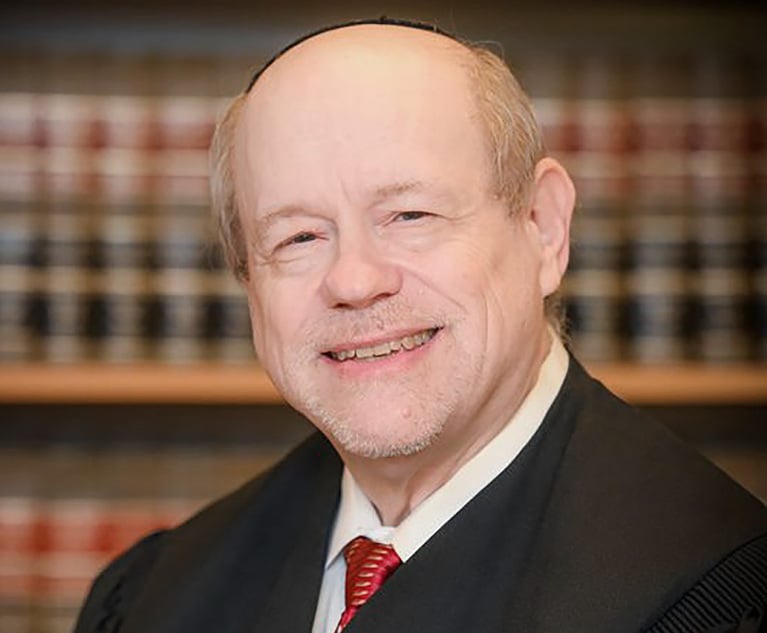
Decision of the Day: Judge Sanctions Attorney for 'Frivolously' Claiming All Nine Personal Injury Categories in Motor Vehicle Case
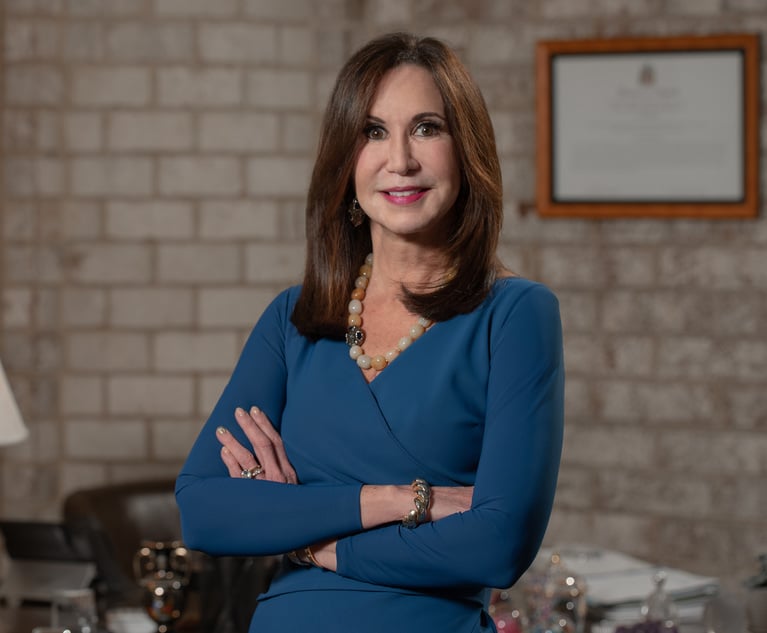
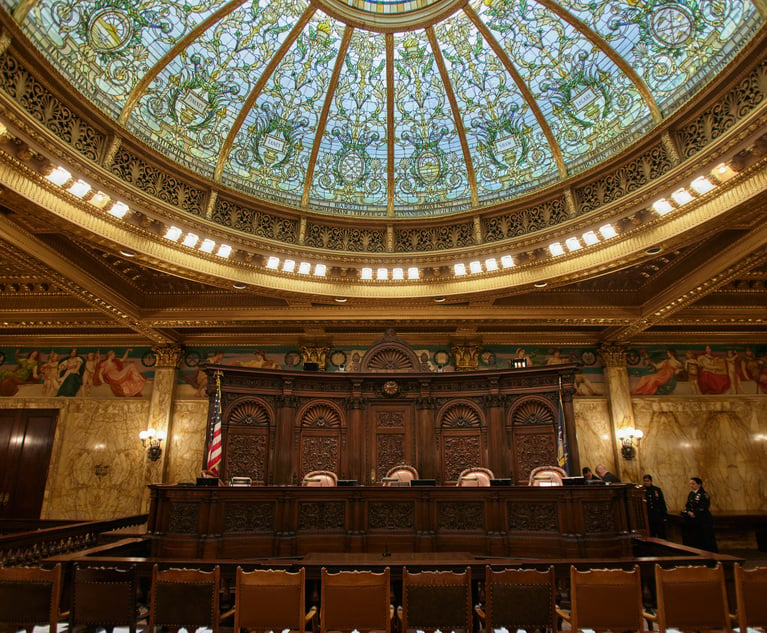
Decision of the Day: Trial Court's Sidestep of 'Batson' Deprived Defendant of Challenge to Jury Discrimination
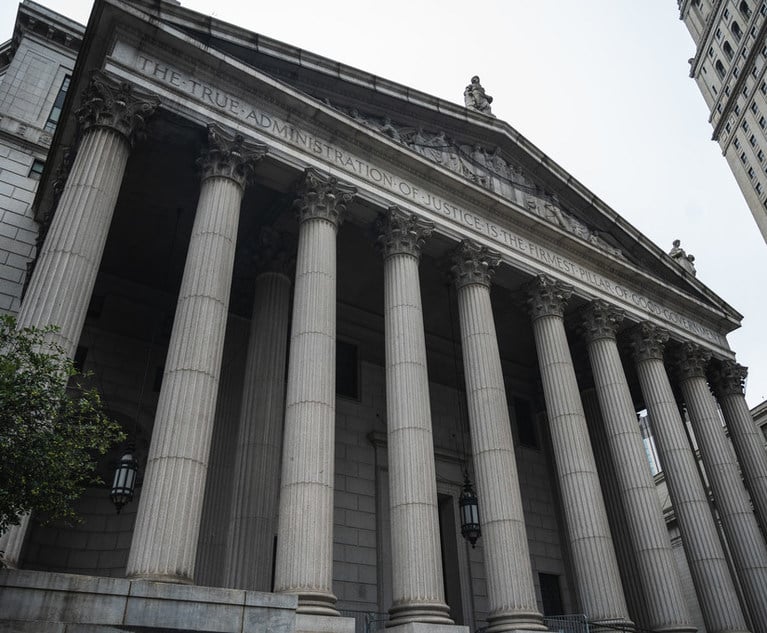
Decision of the Day: Commercial Division Finds Defendant Engaged in Unfair Competition Against Plaintiff
Trending Stories
- 1Six Benefits of Taking an Opposing Medical Expert’s Deposition
- 2Ex-Prosecutor’s Trial Ends as Judge Throws Out Her Felony Indictment in Ahmaud Arbery Death Case
- 3Conversation Catalyst: Transforming Professional Advancement Through Strategic Dialogue
- 4Trump Taps McKinsey CLO Pierre Gentin for Commerce Department GC
- 5Critical Mass With Law.com's Amanda Bronstad: 700+ Residents Near Ohio Derailment File New Suit, Is the FAA to Blame for Last Month's Air Disasters?
Who Got The Work
J. Brugh Lower of Gibbons has entered an appearance for industrial equipment supplier Devco Corporation in a pending trademark infringement lawsuit. The suit, accusing the defendant of selling knock-off Graco products, was filed Dec. 18 in New Jersey District Court by Rivkin Radler on behalf of Graco Inc. and Graco Minnesota. The case, assigned to U.S. District Judge Zahid N. Quraishi, is 3:24-cv-11294, Graco Inc. et al v. Devco Corporation.
Who Got The Work
Rebecca Maller-Stein and Kent A. Yalowitz of Arnold & Porter Kaye Scholer have entered their appearances for Hanaco Venture Capital and its executives, Lior Prosor and David Frankel, in a pending securities lawsuit. The action, filed on Dec. 24 in New York Southern District Court by Zell, Aron & Co. on behalf of Goldeneye Advisors, accuses the defendants of negligently and fraudulently managing the plaintiff's $1 million investment. The case, assigned to U.S. District Judge Vernon S. Broderick, is 1:24-cv-09918, Goldeneye Advisors, LLC v. Hanaco Venture Capital, Ltd. et al.
Who Got The Work
Attorneys from A&O Shearman has stepped in as defense counsel for Toronto-Dominion Bank and other defendants in a pending securities class action. The suit, filed Dec. 11 in New York Southern District Court by Bleichmar Fonti & Auld, accuses the defendants of concealing the bank's 'pervasive' deficiencies in regards to its compliance with the Bank Secrecy Act and the quality of its anti-money laundering controls. The case, assigned to U.S. District Judge Arun Subramanian, is 1:24-cv-09445, Gonzalez v. The Toronto-Dominion Bank et al.
Who Got The Work
Crown Castle International, a Pennsylvania company providing shared communications infrastructure, has turned to Luke D. Wolf of Gordon Rees Scully Mansukhani to fend off a pending breach-of-contract lawsuit. The court action, filed Nov. 25 in Michigan Eastern District Court by Hooper Hathaway PC on behalf of The Town Residences LLC, accuses Crown Castle of failing to transfer approximately $30,000 in utility payments from T-Mobile in breach of a roof-top lease and assignment agreement. The case, assigned to U.S. District Judge Susan K. Declercq, is 2:24-cv-13131, The Town Residences LLC v. T-Mobile US, Inc. et al.
Who Got The Work
Wilfred P. Coronato and Daniel M. Schwartz of McCarter & English have stepped in as defense counsel to Electrolux Home Products Inc. in a pending product liability lawsuit. The court action, filed Nov. 26 in New York Eastern District Court by Poulos Lopiccolo PC and Nagel Rice LLP on behalf of David Stern, alleges that the defendant's refrigerators’ drawers and shelving repeatedly break and fall apart within months after purchase. The case, assigned to U.S. District Judge Joan M. Azrack, is 2:24-cv-08204, Stern v. Electrolux Home Products, Inc.
Featured Firms
Law Offices of Gary Martin Hays & Associates, P.C.
(470) 294-1674
Law Offices of Mark E. Salomone
(857) 444-6468
Smith & Hassler
(713) 739-1250






